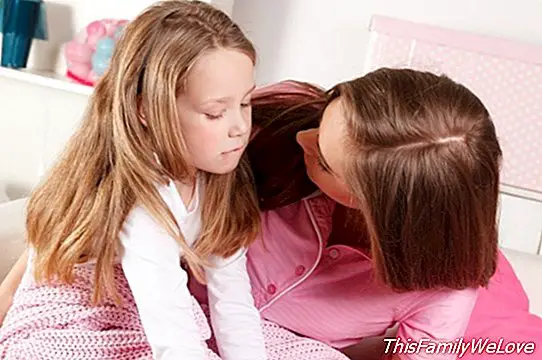Childhood traumas can lead to heart problems in the future

Every action has its consequence in the future, even those that we do not control. There are situations that end up leading to realities that nobody would like to live. An example are the traumas children, events that happen and that mark forever the minors: a traffic accident, the early dismissal of a loved one, a sudden change of air, etc.
However, the traumas children not only mark children at the psychological level. An investigation of the American Heart Association suggests that these events in children cause their heart health to be altered in the future. A warning to not give little importance to situations that may lead to these problems in children.
Prevention and treatment
This research by the American Heart Association was based on the review of previously published studies in which a strong association was found between traumatic experiences in childhood or adolescence and the greater possibility of developing conditions such as obesity, hypertension or type 2 diabetes during the earliest stages of adult life.
Although today it is not clear how childhood traumas affect the health of the heart, the research proposes a new hypothesis. This theory suggests that behavioral, mental health and biological reactions react to high stress. In this way, this anxiety is answered by increasing the food to calm the nerves or by ingesting alcohol in a habitual way, or simply by making the individual live constantly uneasy.
Therefore, first of all from the American Heart Association it is suggested to save children scenarios susceptible of deriving in childhood trauma. For example, avoid being able to see situations of extreme violence in the home or respond aggressively to their bad behavior. In the second place it is remembered that although it may seem that an event is not so serious, for the mind of a child it may have consequences.
Parents should accompany their children in the most delicate moments for them, especially in situations such as the death of a loved one, cases of bullying or a move to a distant place where they should start from scratch. In case it is necessary, the search for professional support by a psychologist is not ruled out either.
Help in traumatic situations
Child traumas can have serious long-term consequences. Therefore, from the American Psychological Association These tips are provided to help children who go through these situations:
- Take time to heal. Keep in mind that it can be a difficult time in your life. Spend time regretting the losses you have suffered. Try to be patient with changes in your emotional state.
- The people closest to the child should listen to him and show solidarity with his situation.
- Encourage the child to share his experience in ways that are comfortable for him, such as talking to relatives or close friends, or writing his impressions in a diary.
- Investigate if there are local support groups, frequently available for those people in situations.
- Introduce healthy behaviors to improve the ability to cope with excessive stress, a healthy body invites a faster solution.
- Establish routines such as eating at regular times and following an exercise program.
- If you do not see improvements, go to a specialist.
Damián Montero




